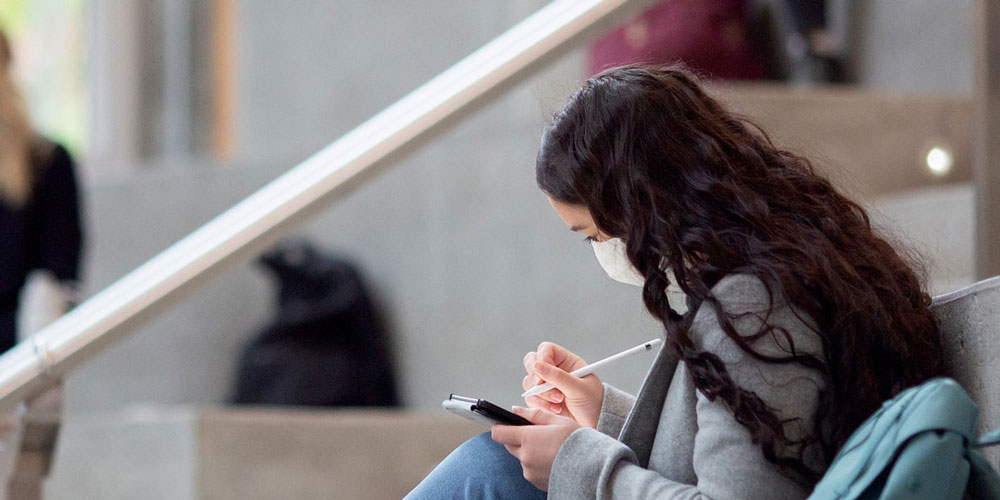
On May 5, the World Health Organization declared that COVID-19 no longer qualifies as a global emergency. This announcement came alongside UBC’s own discussions about fully transitioning to a communicable disease prevention framework.
Learn more about UBC’s communicable disease framework.
For UBC Point Grey, please visit Communicable Disease Prevention Framework – Safety & Risk Services
UBC Campus Rules
UBC Campus Rules have now been retired. Members of the UBC community are no longer required to follow the Campus Rules, although some elements have been maintained within student housing. While the transition to a communicable disease prevention approach is positive, it is still important that we monitor for symptoms of respiratory illness and stay home when we are sick.
Medical masks
There is no general requirement to wear a face covering (mask) on UBC Premises. Further to this, the mandatory requirement to wear medical masks in certain clinical health care settings per the Ministry of Health has now been lifted, effective April 6, 2023. There may still be requirements to wear a face covering on a case-by-case basis depending on the facility infection control risk assessments, but is no longer a universal mandatory requirement. For more information, please visit the BC Government website.
Care locations or community care settings
By Order of the Provincial Health Officer, students, faculty and staff accessing all care locations and community care settings must follow the COVID-19 preventive measures order (September 12, 2022).
If you are accessing any ‘care locations’ or ‘community care’ setting for work purposes, you must be fully vaccinated (which means 7 days have past after your second dose of vaccine).
(a) a hospital,
(b) hospital facilities,
(c) a research facility or research centre associated with a hospital or other care location;
(d) a Provincial mental health facility,
(e) a BC Cancer Agency facility
(f) a residential care facility licensed under the Community Care and Assisted Living Act to provide one of the following types of care prescribed or described in section 2 of the Residential Care Regulation:
(i) Child and Youth Residential;
(ii) Hospice;
(iii) Mental Health;
(iv) Substance Use;
(v) Community Living; or,
(vi) Acquired Injury,
(g) an assisted living residence registered under the Community Care and Assisted Living Act in one of the following classes prescribed in section 3 of the Assisted Living Regulation:
(i) Mental Health,
(ii) Persons with Disabilities, for adults receiving assisted living services due primarily to a disability; or
(iii) Supportive Recovery,
(h) a home operated by or under contract with Community Living British Columbia but not including the home of a home share provider,
(i) a public health office,
(j) a clinic operated by a regional health authority, the Provincial Health Services Authority, British Columbia Emergency Health Services or Providence Health Care Society to provide health care,
(k) an urgent and primary care centre,
(l) a child development centre,
(m) a community health centre,
(n) an adult day care,
(o) a laboratory facility,
(p) a diagnostic facility,
(q) a vehicle from which health care is provided,
(r) a private residence in which a patient or client resides,
(s) a school,
(t) a post-secondary student health services facility,
(u) a supervised consumption site,
(v) an overdose prevention site,
(w) a correctional facility,
(x) another other place where care is provided.
but does not include a place excluded from the application of this Order by posting on the PHO’s website.
(a) home nursing
(b) nursing support for school students
(c) health services for post-secondary students
(d) home support
(e) mental health
(f) drug and alcohol care
(g) continuing care
(h) crisis support
(i) life skills coaching
(j) social skills coaching
(k) counselling
(l) day care for adults
(m) health care provided in an office or clinic
(n) care provided by a child development centre
(o) support provided to a client of Community Living British Columbia
(p) supervised consumption
(q) overdose prevention and public health services
For information on how to obtain your Proof of Vaccination, visit the BC Government Website.
Preventive measures order
The Order requires UBC to verify that students, faculty, and staff who are in a “care location” (such as hospitals and residential care facilities) for teaching, research, or associated administrative purposes to be fully vaccinated against COVID-19. The order also applies to contractors, volunteers or technical specialists who are in such locations.
Unvaccinated students, faculty and staff must not attend care locations unless they have received or are in the process of applying for an exemption from the Provincial Health Officer.
Compliance to the order
If you work in a health “care location”, there is a requirement to be fully vaccinated per the Provincial Health Order (PHO).
Your Head of Department will outline the means taken to achieve compliance to this order.
Department Heads can contact hse.ok@ubc.ca if they require assistance tracking compliance to the Order.
Proof of vaccination
The small paper cards given out at local immunization centres and pharmacies are not accepted as proof of vaccination as per the PHO. For instructions on how to access your digital Health Gateway Records or Federal Proof of Vaccination, please visit the Government BC website.
Please note that BC Vaccine cards are no longer issued by the Province. Proof of vaccination QR codes downloaded more than 6 months ago may not verify properly. Download a new copy of your proof of vaccination to ensure you have a valid QR code.
If your immunization history is not reflected in your Government records, visit the Immunization Record site to update your details before providing your proof of vaccination.

